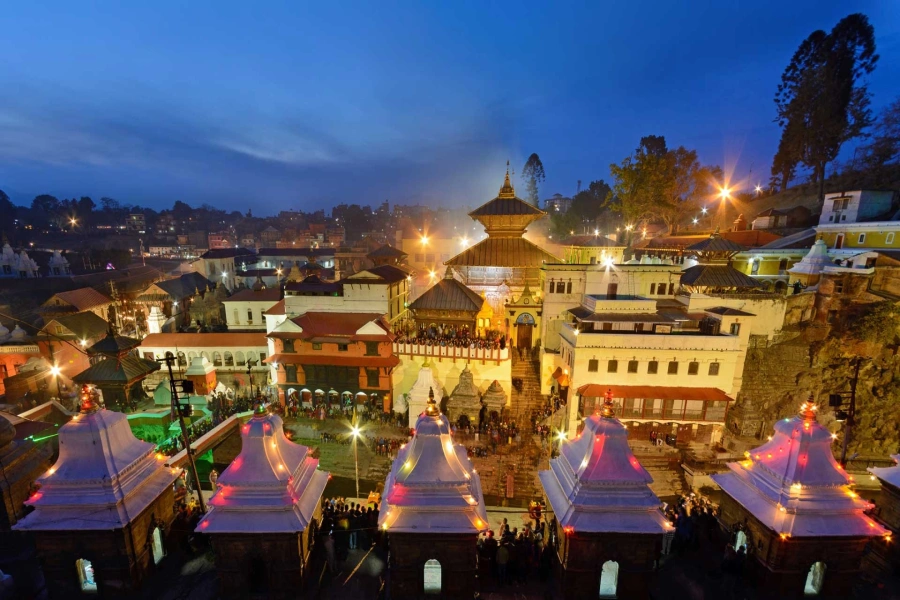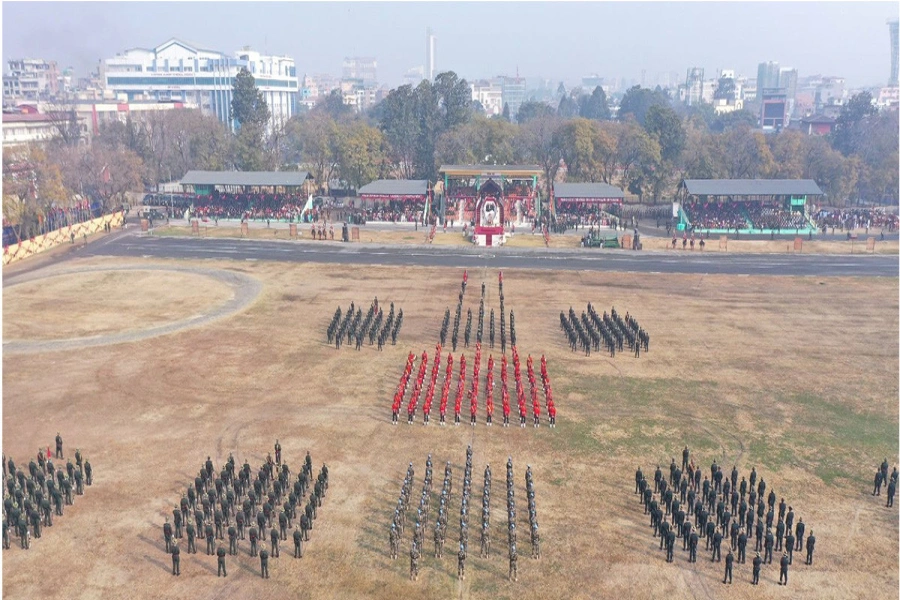The legislative framework reflects a strong commitment to protecting individuals from character assassination
Suspects with political connections are treated with respect but the suspects or accused without political influence are treated as criminals. The cases of Sandip Lamichane, Karan Chaudhary, Bal Krishna Khand, Kailash Sirohiya are few among hundreds. Rabi Lamichhane, Rabindra Mishra, Govinda KC, and Lal Babu Pandit have successfully taken the steps to sue the media for damaging their reputation through false and unsubstantiated reports.
Perceptions about some people are often hard to erase. Without knowing if the person is accused or convicted, we have the perception of the worst possible character of that person. An accused is just a suspect who has been charged with a criminal offense while a convicted is the person who has officially been proven guilty by the court. Despite the clear separation provided by law, a society often takes the accused as a convict ignoring the principle” ‘PRESUMPTION OF INNOCENT UNTIL PROVEN GUILTY” guaranteed in different national and international statutes.
Reputation and Prestige are Invaluable for Nepalese society. Losing reputation and social credibility just because of an accusation is hugely costly in Nepalese society. Legal protections such as the right to privacy in Article 28, and the free and impartial trial in Article 20 of the constitution of Nepal are ensured for every citizen. The procedures for determining crime and punishments are essential for ensuring justice and maintaining public confidence in the legal system. We have been losing track of protection and privacy guaranteed by the law to the accused in numerous cases in recent days.
The legislative framework reflects a strong commitment to protecting individuals from character assassination. It also ensures defamatory actions are neither socially acceptable nor legally tolerated. Section 306 of the National Criminal Code 2074 explicitly prohibits verbal or written defamation. In the age of information and technology, breaches of defamation law have become more frequent. Everyone should be treated equally before the verdict, every individual is considered innocent unless proven guilty.
Defamation case a planned attempt to discourage media from expo...

Finding out whether an accused is guilty or not is the duty of the judiciary system. Nobody is a court other than the court. We have to understand that convicting someone is a serious task and takes crucial procedures involving multiple agencies at a time including law enforcement agencies. All involved agencies go through multiple processes whether to call anyone accused or just a minor suspect or a suspect in a supporting role. The suspect is considered to be dangerous and is arrested if the suspect is likely to get loose, likely to damage or hide evidence, the victim or other public has a significant threat. In such cases, law enforcement agencies ask the court for permission to keep the suspect at high alert and keep in custody until all the evidence is secured. The court has to decide whether to grant that custody permission or not based on the evidence presented by law enforcement agencies. The law enforcement agencies like Nepal Police, CIB, CIAA, Court, etc, should go through verifying evidence, and facts, testifying witnesses, and simultaneous arguments for and against the evidence during this time. Law enforcement agencies are given certain time to keep such suspects under custody. A case file is prepared for court proceeds. Then only the suspect is decided if the suspect is just a suspect or an accused.
All other processes take place in court for conviction or innocence in every case. Even if the accused is convicted, sentencing takes another procedure. Disclosing personal information of suspects, petitioners, investigated or accused personnels in press releases, interviews, newspaper headlines by law enforcement agencies or court is not a fair thing to do unless a public notice related to the case is issued with stakeholder’s approval for extra evidence or support for the case. Law enforcement agencies have disclosed personal information in numerous cases in our country. Such actions are considered a high factor in affecting the public sentiments for or against the accused or suspect. The suspect or accused and their family members face unwanted dishonor and humiliation along with tiring legal procedures and its endless stress and humiliation because of these things.
Maintaining personal privacy is very important. Media, being the 4th pillar, has its important roles and responsibilities in maintaining citizen’s rights. Publishing or stating the names of a person or organization just based on the assumption by any authority often challenges legal provisions or our fundamental rights. News published prejudicially can mislead the public affecting the reputation of an accused or suspect.
Prof Dr Yubraj Sangroula says ‘The issue of citizenship is between the state and Sirohiya not between people or media. The media shouldn’t do the trial.’ in the recent case of a Chairman of a media house in Kathmandu.
Likewise, different international organizations brought their concern stating that the government’s step was against fundamental rights.
“Arrest threatens Nepal’s standing as a bastion of free speech,” The New York Times wrote. Unless the verdict is given, the process must be fair. All the responsible authorities from investigating officers to the judges, should perform their duties by protecting the privacy and reputation of an accused. Unfortunately, in real court practices, the way the accused is taken into court with handcuffs is a fearful situation. This has been a regular event in Nepal. Suspects with political connections are treated with respect but the suspects or accused without political influence are treated as criminals. The cases of Sandip Lamichane, Karan Chaudhary, Bal Krishna Khand, Kailash Sirohiya are few among hundreds. Rabi Lamichhane, Rabindra Mishra, Govinda KC, and Lal Babu Pandit have successfully taken the steps to sue the media for damaging their reputation through false and unsubstantiated reports. The court has set its precedent of protecting the reputation of the accused in such cases. The court has ruled in their favor ordering a public apology and paying damages from the media.
But when it comes to the government, everybody looks helpless in our country. Every citizen who has no one should have their country for them and their administrative, law enforcement and justice system must be their place of protection when needed. Instead, people feel threatened by them the most in our country. This is shameful as a country. Defamation laws are equal for all individuals as human rights are. There are some loopholes in laws of some countries which immunize officials legally. Nicolas Ortega writes: ‘When the government harms someone, a 1946 law called the Federal Tort Claims Act generally provides a judicial remedy. In 1988, in the Westfall Act, Congress amended the earlier act to cover most personal injury claims brought against federal officials. These laws, however, carve out immunities for government officials when it comes to “libel, slander, misrepresentation” as well as “deceit”.’ However in Nepal, there is no explicit law which protects the citizen being defamed by government officials or vice versa.
Social media has broadened the area where there is a high chance of conducting an act against defamation unknowingly or knowingly. New cybercrime and digital security laws are increasingly used as a medium of defamation, expanding the reach of criminal penalties into online spaces. Lacking enough digital literacy, there are cases where social media users including the influencers have been accused of defamation. Once the content is published with any intentions, it is out of control. The lack of content law, personal privacy law and execution of penalties in defamation practices are making things harder. Defamation lawsuits are also frequently misused to stifle dissent. Many cases have been raised where powerful entities use legal actions to intimidate, silence, or financially burden legal defense until they abandon their criticism or opposition.
Several countries have been violating the rights of journalists in different forms. Criminal defamation sanctions have been filed against journalists for publishing allegations of corruption, with high-profile cases involving threats and legal actions. In African states like Burkina Faso, and Rwanda, criminal defamation laws are used to silence dissenting journalists. In Latin American states like Venezuela, Costa Rica, Mexico etc, journalists have been imprisoned for criticizing the government. In Asian countries like the Philippines, Vietnam, Myanmar, and China criminal charges against journalists, and harsh penalties for critical reporting have been reported. The cause list published by court everyday or the record of the court discloses names, issues, ongoing process, and the parties involved publicly. There are no explicit or comprehensive laws governing the disclosure of information about the accused. Countries like the United States, Australia, Canada follow the open justice system which aims to ensure and maintain public confidence in the judicial system. In contrast, countries like Germany, France, and Switzerland have stringent privacy laws and policies that restrict the public dissemination of information about individuals who are merely accused of crimes.
Judicial proceedings are open to public scrutiny, thereby maintaining public confidence in the legal system. However, this openness can lead to unintended consequences, such as the disclosure of personal details that can harm individuals' privacy. In the end it ruins our judicial system making places for media trials, viral social media contents and controversial celebrities’s provocative statements.
“Let a hundred criminals escape, but not a single innocent person be convicted” is a cornerstone of the Nepali legal system. We cannot oversee the sufferings and losses people face due to defamation during trials and court processes. There is a need for stronger media regulations and adherence to journalistic standards in defamation issues. The privacy of an accused or suspect is necessary to be protected. In many cases the personal information of criminals may also not be required to be public.
In open hearings, we can witness the court procedure and court hearings. This provision is essential and being practiced to gain public confidence in the judiciary. But having access to all the information including the names of three generations and address of accused or suspects accessible to all people in and outside the country is contradictory to privacy and defamation law set by our own justice system. Once the name is recorded in court records, it takes a huge effort to erase it. Even after the accused is proven innocent. No matter what you are: guilty or innocent, the society treats all of the suspects and accused facing defamation by media or government agencies. Losing social faith is like losing hope.
Let's look at the case of Ekta Shishu Niketan Boarding School and its official’s defamation in Shalin Pokhrel’s suicide case. Who is going to fulfill the damages done by government agency’s carelessness, media and social media? Isn't this a shame for a country? I believe that the courts should refrain from disclosing the real names of the accused in public records like cause list until a case is finalized. This would be a significant step towards maintaining privacy and preventing the negative societal impact of premature defamation. This is a bare minimum effort the court can implement to protect its citizens from defamation, to protect their privacy with social respect. The time has come. The steps have to be taken and the results have to be delivered to the innocent citizens and fellow officials no matter who they are.






































